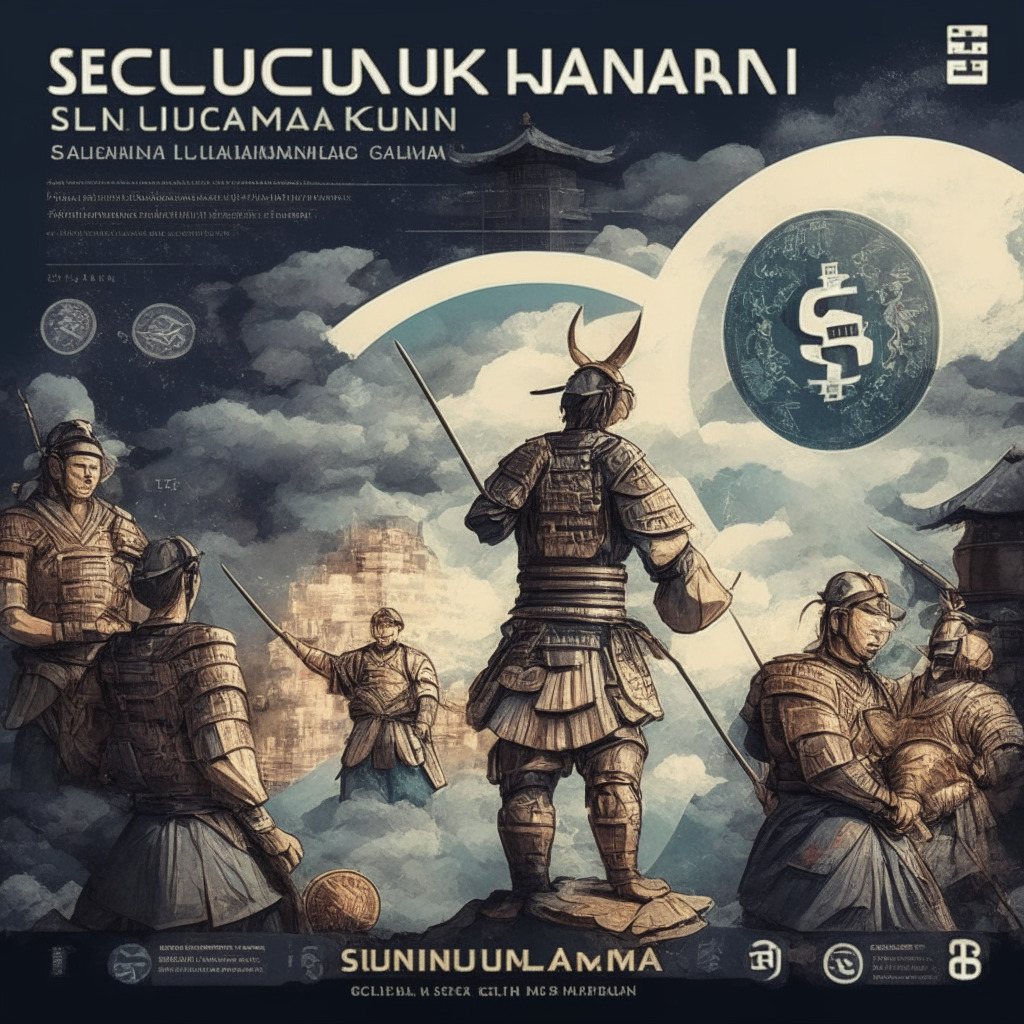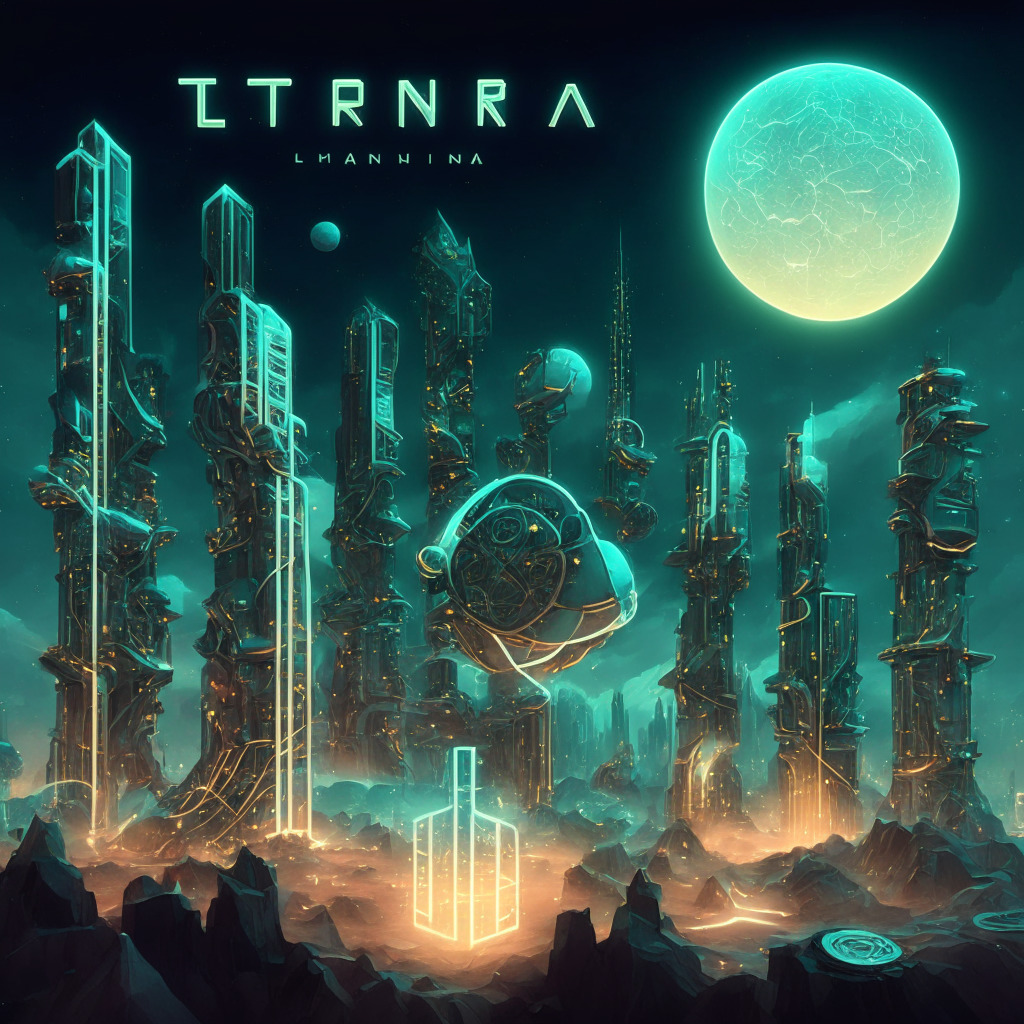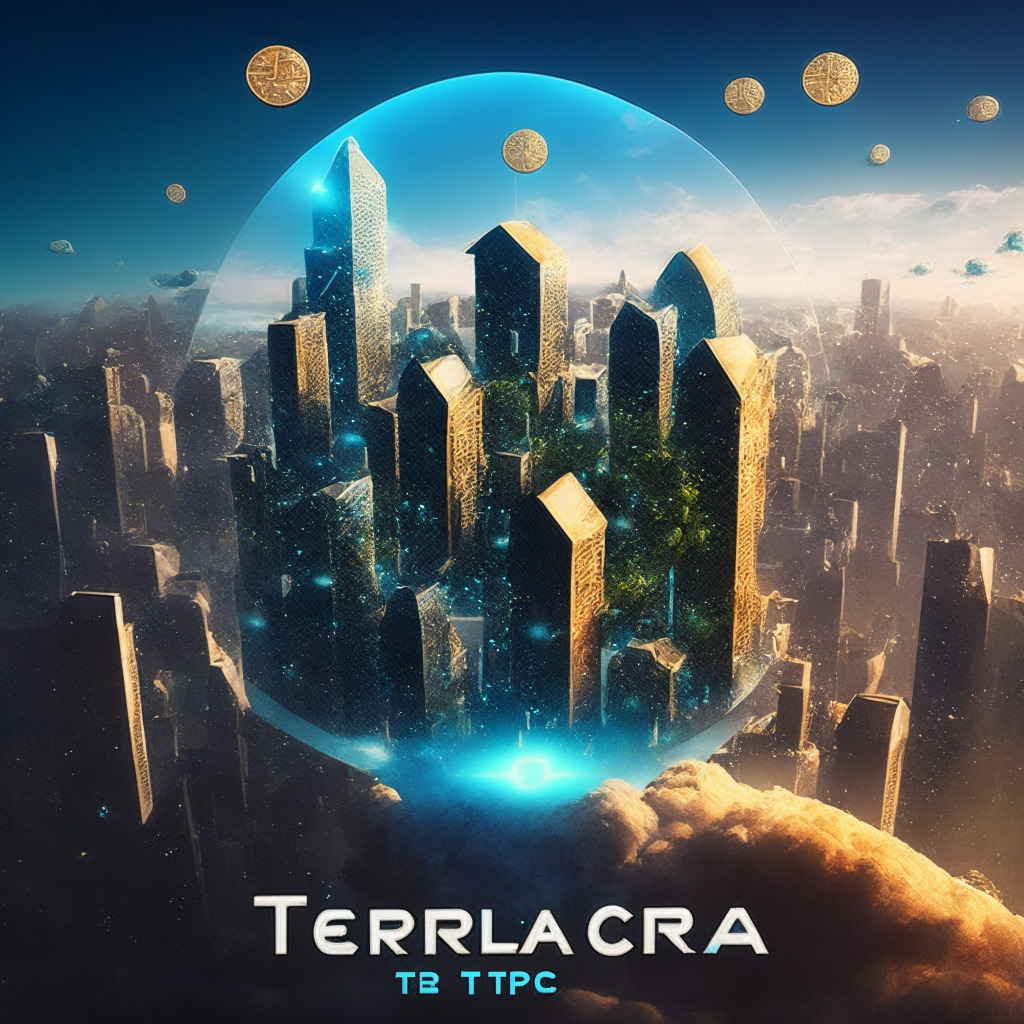Galaxy Digital CEO Mike Novogratz suggests the crypto industry’s flourishing future requires the US’s active participation. However, the current unfavorable regulatory environment is forcing crypto firms to consider operations overseas, seeking a balance between compliance and business growth. Key companies like Coinbase are expanding services globally, highlighting the need for clearer US crypto regulations.
Search Results for: cosmos
Bitcoin’s Resilience Amid Regulatory News and the Rise of Crypto Presales as a Diversification Strategy
“Bitcoin showcased a surge in trading volumes exceeding $25 billion in the past 24h, retracing to the $30,000 mark catalyzed by a Wall Street Journal report. However, resilience is indicated by an expected uptrend in 2023. Diversification tactic should involve investing in presales, aiding budding crypto projects and offering exponential returns to early investors. Interest in the ongoing $WSM token presale raises over $11 million in one month.”
SEC Lawsuits Impact on Crypto: Analyzing Losses and Market Resilience
The SEC recently filed lawsuits against Binance and Coinbase, accusing them of selling unregistered securities and causing significant losses for various cryptocurrencies. The affected tokens lost 15%, or $5 billion, from their market capitalizations, impacting not only the accused projects but also emerging market tokens not implicated in the lawsuit. Despite these losses, the crypto market has shown resilience with a recent bullish rally.
DeFi Investments Surge as Startups Secure $49.9M: Exploring Opportunities and Challenges
This week, 14 cryptocurrency startups secured a total of $49.9 million in funding, primarily in the decentralized finance (DeFi) sector. Major beneficiary dtcpay raised approximately $16.5 million in a pre-Series A round, focusing on providing payment solutions for fiat and cryptocurrencies. The expansion of DeFi investments highlights a promising future for DeFi integration into the broader economy.
Reviving Terra Luna Classic: Six Samurai’s Ambitious Q3 Spend Proposal & Ecosystem Impact
The Terra Allies’ Six Samurai team aims to revive the Terra Luna Classic (LUNC) ecosystem with a comprehensive Q3 plan and a $116,000 budget. Focusing on crucial milestones like migrating to Columbus-6 and listing Terra Classic on Keplr’s Web Interface, the team demonstrates dedication to innovation in the blockchain space.
Six Samurai’s Bold Proposal: Reviving Terra Luna Classic and Impact on LUNC Market
The Six Samurai, a group of LUNC holders, presented a joint governance proposal for Terra Luna Classic, aiming to revive its ecosystem. Their Q3 spend proposal involves migration, Cosmos SDK updates, and listing on analytic tools. Despite optimism, remember to conduct thorough research before investing in the unpredictable cryptocurrency market.
Terra Luna Classic’s ICA Host Proposal: Boosting Staking and Quicksilver Integration Pros & Cons
Terra Luna Classic developers have submitted a joint governance proposal to allow multiple interchain account (ICA) host message types for QuickSilver. This aims to enhance the LUNC staking ratio on the Terra Classic chain, enabling interchain staking on any validators, maximizing liquidity, capital efficiency, and improving network security and decentralization, similar to Ethereum’s liquid staking provider, Lido.
Binance Labs & CoinFund Fuel Neutron’s Growth: Interchain Security vs AI Funding Dominance
Binance Labs and CoinFund co-led a $10 million funding round for Neutron, a cross-chain smart contract platform in the Cosmos ecosystem. The investment aims to develop Neutron’s blockchain software, allowing developers to create secure, user-friendly decentralized applications (DApps) across 51 blockchains.
Neutron’s $10M Boost: Fueling DeFi Innovation or Facing Regulatory Hurdles?
Neutron, a smart contract blockchain operating on the Cosmos network, has secured $10 million in funding led by Binance Labs. The investment aims to expand the Neutron platform and boost interest in the Cosmos ecosystem, pioneering smart contract technology and accelerating development of the Atom Economic Zone.
Polygon 2.0: zkEVM Validium Upgrade for Improved PoS Chain – Pros, Cons, and Conflict
Polygon Labs proposes upgrading its proof-of-stake (PoS) chain to a zkEVM validium to improve security and performance. The upgrade addresses issues like fast block times affecting gas estimation and chain reorgs while integrating zero-knowledge proofs into the infrastructure. Implementation is expected by Q1 2024 if accepted.
Terra Luna Classic’s Q3 Ambitions: Opportunities and Challenges in Network Growth
The Joint L1 Task Force (L1TF) has submitted a revised proposal for Terra Luna Classic’s Q3 development, focusing on LUNC and USTC supply reduction, upgrading the Cosmos SDK, integrating Block Entropy AI app chain, and collaborating with external teams. These ambitious plans aim to increase stability and growth but also present challenges for the network.
USTC Repeg Revival: Terra Luna Classic Teams Unite for Stablecoin’s Future Growth
Terra Luna Classic’s core developer Joint L1 Task Force (L1TF) plans to collaborate with RedlineDrifter-led USTC repeg team on the revival of TerraClassicUSD (USTC) price to $1. Following the v2.1.1 parity upgrade, both teams will focus on USTC stablecoin, addressing community concerns and enhancing chain utility.
Stable Crypto Weekend Meets Regulatory Developments: Market Impact and the Future of Decentralization
The cryptocurrency market showed stability over the weekend, while a federal judge approved a temporary agreement between the SEC and Binance. This agreement ensures only Binance.US employees access customer funds amidst ongoing legal developments and increased emphasis on decentralization in the industry.
Crypto Market Recovering Amid Regulatory Tensions: Binance vs SEC and CBDC Evaluations
The crypto market shows signs of recovery as the U.S. inflation rate cools and the Fed abstains from raising interest rates. Leading cryptocurrencies report nominal gains, while Binance faces legal battles with the SEC. Key events this week include discussions on central bank digital currencies and support for a draft bill to regulate cryptocurrencies, indicating that regulatory debates play a crucial role in shaping the future of the crypto market.
Ethereum Plunges 6.5% – Uncertain Future vs Hopeful Indicators: Exploring Pros, Cons, and Alternatives
Despite Ethereum’s recent 6.5% drop to $1,637, its fundamentals remain robust with a possible price recovery forthcoming. With its successful staking withdrawals, deflationary tendencies, and favorable market positioning, Ethereum holds promise for recovery, while emerging altcoins such as ecoterra offer fresh opportunities for investors.
Binance Supports Terra Classic Upgrade: Pros, Cons, and Market Impact
Binance and other major crypto exchanges support Terra Classic’s v2.1.1 upgrade, which brings its blockchain to parity with Terra 2.0 and other Cosmos chains. Despite minor setbacks awaiting a Google Chrome extension update, the upgrade signals potential for advanced decentralized applications and a positive market sentiment for the network’s future.
Chorus One Enters Urbit Hosting Space: A Step Towards Decentralization or Unsustainable Complexity?
Chorus One, a staking services provider for over 40 blockchains, including Ethereum, Solana, Cosmos, and Polkadot, has entered the Urbit peer-to-peer network with its launch of Red Horizon hosting platform. This move expands Urbit’s ecosystem and indicates growing interest in decentralized, peer-to-peer solutions for greater autonomy and control over personal data.
Terra Classic v2.1.1 Parity Upgrade: Implications and Impact on LUNC Community
The upcoming Terra Classic blockchain v2.1.1 parity upgrade, scheduled for June 14, aims to bring Terra Classic at par with other blockchains, opening doors for dApp development. The 5% minimum validator commission will be introduced, and wasmvm updated to v1.1.2.
SEC Allegations Against Exchanges: A Chilling Effect on DeFi’s Future and Innovation
The SEC’s allegations against Binance and Coinbase challenge the future of DeFi, potentially hindering innovation and disrupting the ecosystem. By targeting these exchanges for suspected securities law violations, regulators threaten DeFi’s decentralized nature and may dampen investor confidence, limiting market growth and long-term potential.
SEC Pressure on Crypto Exchanges: eToro and Robinhood’s Compliance Commitment
As the SEC increases regulatory pressure on cryptocurrency exchanges like Binance and Coinbase, major platforms, including eToro, emphasize their commitment to compliance and collaboration with regulators. This ensures access to a variety of asset classes for investors, shaping the crypto industry’s future while promoting investor protection and fostering innovation and growth.
Impact of SEC Lawsuits on Crypto Market: Analyzing Volatility and Affected Tokens
The SEC lawsuits against Coinbase and Binance have impacted crypto markets, causing certain tokens like SAND, ALGO, ADA, BNB, FIL, MATIC, CHZ, ATOM, and ICP to drop 10-18% in value. Skepticism surrounds the SEC’s reasoning, with claims of technical misunderstandings. Traders should tread cautiously with affected tokens as market fluctuations persist.
Terra Luna Classic vs Wall Street Memes: Prospects of Rising Coins in Turbulent Crypto Market
Terra Luna Classic (LUNC) price rose by 3% in 24 hours amidst overall stagnant market, with positive momentum noted in its recovering relative strength index and growing demand. Community proposals, including creating a test environment for re-pegging USTC, contribute to a favorable outlook.
Terra Classic’s Parity Upgrade: A United Community, But Can It Overcome Binance’s Actions?
The Terra Classic community recently supported the v2.1.0 Parity upgrade proposal by Joint L1 Task Force, scheduled for June 14. The upgrade aims to achieve parity with other blockchains and enable building on the Terra Classic chain, making it one of the most substantial upgrades since the community took control.
SEC’s Cryptocurrency Securities Criteria: Uncertainty and its Impact on the Industry
The US SEC’s recent lawsuits against Binance and Coinbase have raised concerns about criteria used to determine which cryptocurrencies are considered securities. Market capitalization of these “crypto securities” exceeds $100 billion, yet clear regulations are lacking, leading to uncertainty about the future of crypto in the United States.
Mitsubishi UFJ’s Cross-Chain Stablecoin Platform: Potential and Challenges Ahead
Mitsubishi UFJ, in collaboration with Datachain, plans to launch a cross-chain stablecoin issuance and interoperability platform by 2024, targeting networks like Ethereum, Cosmos, Avalanche, and Polygon. The platform will enable stablecoin issuance, cross-chain swaps, lending, and payments, marking a significant milestone in connecting traditional finance with emerging blockchain technology.
Crypto Safe Havens Amid SEC Scrutiny: Memecoins and Eco-Friendly Projects on the Rise
Despite the recent SEC regulatory uncertainty, crypto prices are rising, with Bitcoin, Ether, and meme coins like Dogecoin and Shiba Inu among the beneficiaries. Investors may be shifting towards cryptocurrencies considered safe havens against regulatory risks, as continued development and investment in the US crypto sector promote adoption.
Solana (SOL) in SEC Crosshairs: Impact on Price and Alternatives for High-Risk Crypto Investors
The SEC has labeled Solana (SOL) as a security amid lawsuits against Binance and Coinbase. SOL’s price dropped 10% and may face delisting from US exchanges. Despite the uncertainty, alternative high-risk crypto investments like yPredict’s $YPRED token presale emerge as attractive options.
Ethereum’s Recovery Prospects Amid SEC Lawsuit and Rising Altcoin Opportunities
Ethereum’s price dropped 3% to $1,816 due to the SEC lawsuit against Binance, but managed to escape charges unlike other altcoins. With stable support around $1,800, staking activity, and no mention in the SEC complaint, ETH has an unobstructed opportunity to recover.
Crypto Market’s Resilience Amid SEC Lawsuit Against Binance: Unwavering or at Risk?
The crypto markets remained resilient after the SEC filed a lawsuit against Binance and its founder for reportedly violating federal securities laws. Despite massive net outflows, Binance’s stablecoin balance stays healthy. The lawsuit’s outcome will be crucial in shaping the crypto market landscape and token offerings regulation.
SEC Labels 61 Cryptocurrencies as Securities: Balancing Investor Protection and Innovation
The SEC recently labeled 61 cryptocurrencies, including Binance USD and Cardano (ADA), as securities, affecting $100 billion in tokens. While some view regulation as positive for the industry, others argue it could stifle innovation, create confusion, and discourage entrepreneurs from entering the market. Striking a balance between protecting investors and promoting innovation is crucial.
SEC Lawsuit Against Binance: A Turning Point for Crypto Regulations and Market Health
The cryptocurrency community faces growing concerns over the SEC’s lawsuit against Binance and its CEO for allegedly offering unregistered securities. The accusations have impacted the market, with altcoins experiencing significant losses. The lawsuit’s outcome could shape the future of regulatory measures within the cryptocurrency industry, with potential long-lasting implications for both exchanges and users.































